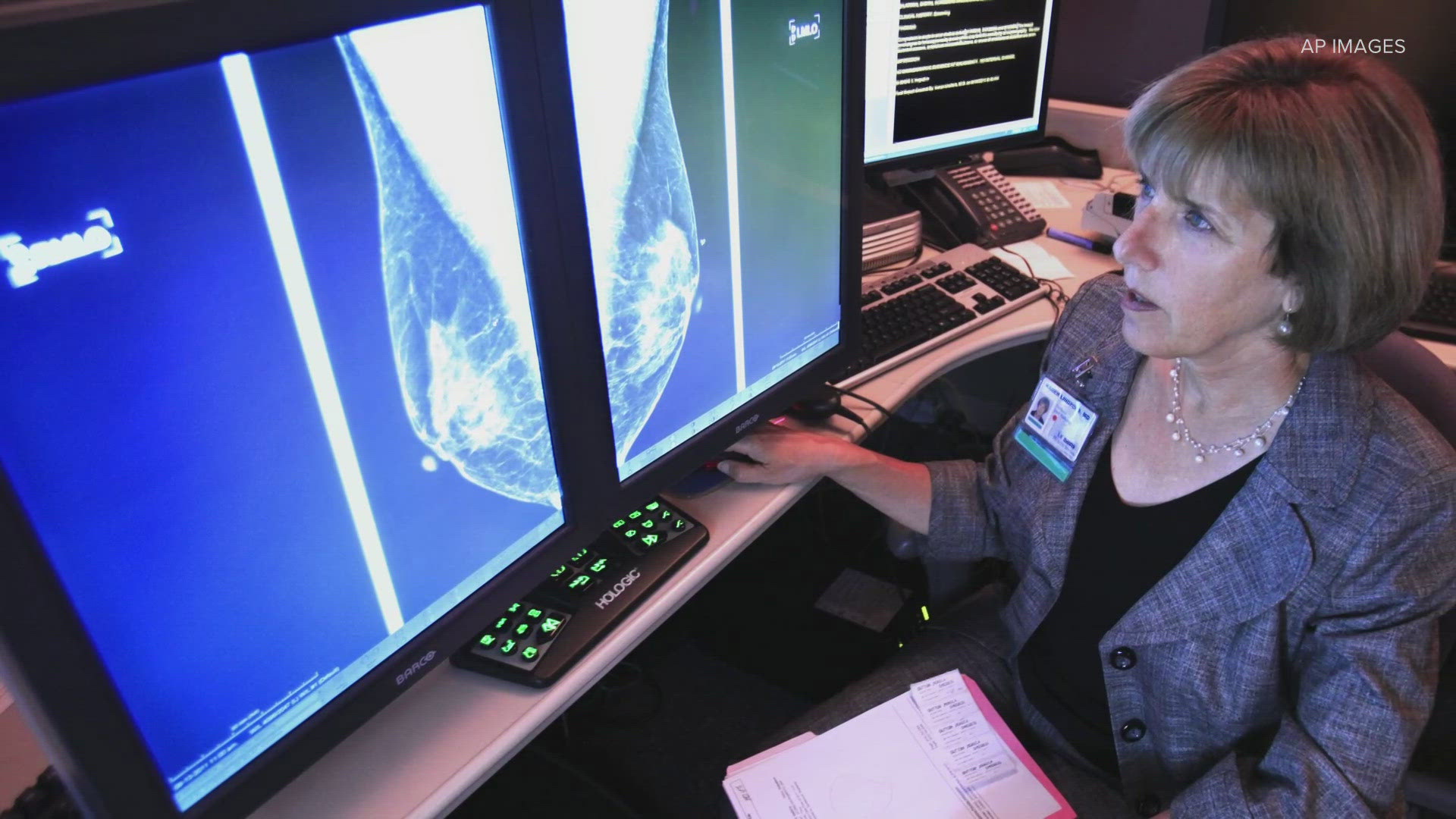SEATTLE — Women who get their mammograms in the U.S. will now receive an additional layer of information from their scan: their breast density.
In Washington state, women receiving mammograms have already been receiving a breast density report since the law when into effect in 2019.
"All breast imaging clinics in the state of Washington are already complying with this requirement," Dontchos said.
Starting Sept. 10 this year, per FDA rules, healthcare providers who conduct mammograms for breast cancer screening must include a report on the patient's breast density.
The so-called "density" comes from having more concentrated fibrous and glandular tissue in the breast. A mammogram of a breast with more fatty tissue shows more darker areas on the image. Comparatively, a woman with dense breasts will show more white areas on a mammogram.
Dr. Brian Dontchos, a radiologist at Fred Hutchinson Cancer Center who specializes in diagnosing breast cancer, puts it this way:
"On a mammogram, what we see on our screens is fibro glandular tissue, which is the density that we are talking about. That appears white on a mammogram image. Fat, which is also within the breast, appears dark on an image. The problem is that cancer, when we see it on a mammogram, appears white. If the more white tissue you have, the more dense tissue you have," Dontchos said.
That is what makes it harder for doctors to interpret possible cancerous growths on a mammogram.
The National Cancer Institute says women with dense breasts are very common. Nearly half of women who get mammograms, find out they have dense breasts.
Doctors add women can't determine breast density by self-exam or appearance. It can only be seen in imaging.
Dontchos said breast density is another factor women should pay attention to when it comes to their lifetime risk of getting breast cancer.
"That's not to say that most women with dense breast tissue will develop breast cancer in their lifetime, in fact, most won't. But it's a small piece, but an important piece of the puzzle in determining your overall increased risk of breast cancer," Dontchos said.
Dontchos adds, that the FDA now requiring all providers in the U.S. to add a breast density report is a step toward more tailored screening methods.
"It just highlights the importance of it. We've known for some time now that incremental increases in mammographic breast density correspond to incremental increased risk of breast cancer over a woman's lifetime," Dontchos said.
Women who do have dense breasts, a family history of breast cancer, or a history of prior breast growth and conditions should consult with their doctor about additional screening if needed.
Why women should pay attention to 'breast density' report from mammograms: HealthLink
The FDA now requires a breast density report for women receiving mammograms for breast cancer screenings. The requirement is already in place in Washington.

